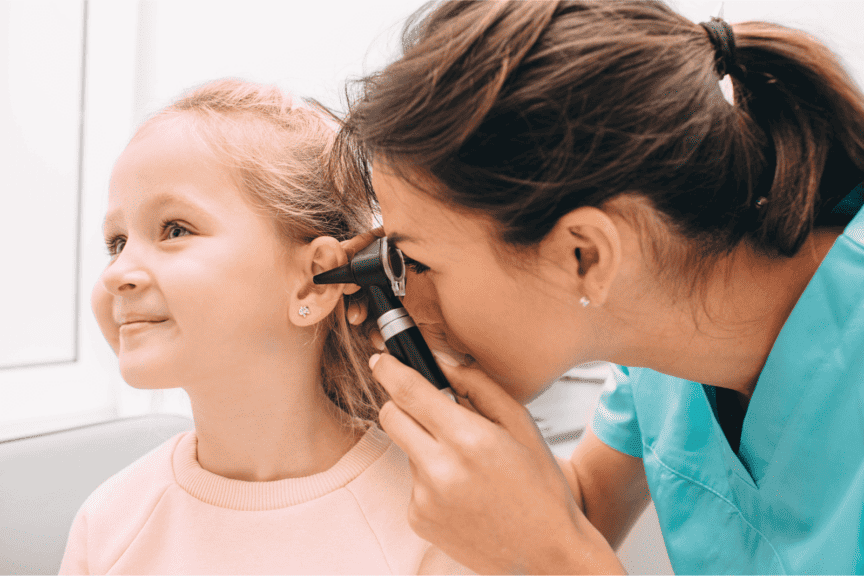Hearing loss can be caused by exposure to loud noise, injury, and even aging. Hearing loss can also be impacted by genetics. Understanding the genetic factors behind hearing loss can be crucial for both preventing and treating hearing loss. So, let’s unravel the mystery of genetics and hearing loss.
The Genetic Puzzle
First things first, let’s talk about genes. You’ve probably heard of them – those tiny units in our DNA that determine our traits. Well, guess what? Genes also play a significant role in our hearing health.
Hearing loss can be broadly categorized into two types: congenital (present from birth) and acquired (developed over time). While acquired hearing loss is often linked to factors like aging or exposure to loud noise, congenital hearing loss is where genetics can come into play.
The Genes Behind Congenital Hearing Loss
In recent years, research has uncovered a treasure trove of information about the genes responsible for congenital hearing loss. These genes can be classified into two main groups:
- Syndromic Hearing Loss: Sometimes, hearing loss is just one piece of the puzzle. In syndromic hearing loss, it’s associated with other medical conditions or abnormalities. Over 400 genetic syndromes have hearing loss as one of their features. One well-known example is Usher syndrome, which combines hearing loss with vision problems.
- Non-Syndromic Hearing Loss: This is when hearing loss is the primary or only issue. It’s estimated that about 70% of congenital hearing loss cases fall into this category. Non-syndromic hearing loss can be further divided into autosomal dominant, autosomal recessive, and X-linked, depending on how the genes are inherited.
The Inheritance Game
Now, let’s talk inheritance. How do these hearing loss genes get passed down from generation to generation? Well, it’s a bit like a genetic lottery.
In autosomal dominant inheritance, if one parent carries a gene mutation for hearing loss, there’s a 50% chance it will be passed on to their child. With autosomal recessive inheritance, both parents need to carry the gene mutation for their child to have a chance of inheriting it. In X-linked inheritance, the mutation occurs on the X chromosome and is often passed from mothers to their sons.
But here’s the catch: not everyone who inherits these gene mutations will develop hearing loss. Genetics is a complex interplay between your DNA and the environment you’re exposed to, so it’s not guaranteed that this gene will lead to hearing loss.
Genetic Testing: What’s It All About?
In recent years, genetic testing has come a long way, and it can play a crucial role in understanding your hearing health. If you have a family history of hearing loss or suspect a genetic link, genetic testing can help identify potential gene mutations. This information can be invaluable for early intervention and personalized treatment plans.
For parents with a child diagnosed with congenital hearing loss, genetic testing can provide insights into the cause, which can aid in making informed decisions about treatment options, such as cochlear implants or hearing aids.
The Power of Early Intervention
Understanding the genetic roots of hearing loss is not just about satisfying our curiosity; it can be a game-changer in providing early intervention and tailored treatment. For children born with congenital hearing loss, it can mean the world. Studies have shown that children who receive early intervention services, such as hearing aids or cochlear implants, perform better academically and have improved communication skills.
The Future Looks Bright
The field of genetics is advancing at an astonishing pace. Recent research has identified new genes associated with hearing loss, paving the way for more accurate diagnosis and treatment options. This means that the future holds promise for even more personalized and effective solutions for those with genetic hearing loss.
Book a Hearing Test
Understanding the role of genetics in hearing loss can be an important step in treating hearing loss. Whether you’re a parent concerned about your child’s hearing or an adult with a family history of hearing loss, schedule a hearing test today! We’ll help you learn more about your hearing loss, find out what sounds you’re missing, and suggest the right treatment option to help you hear all the sounds around you.

